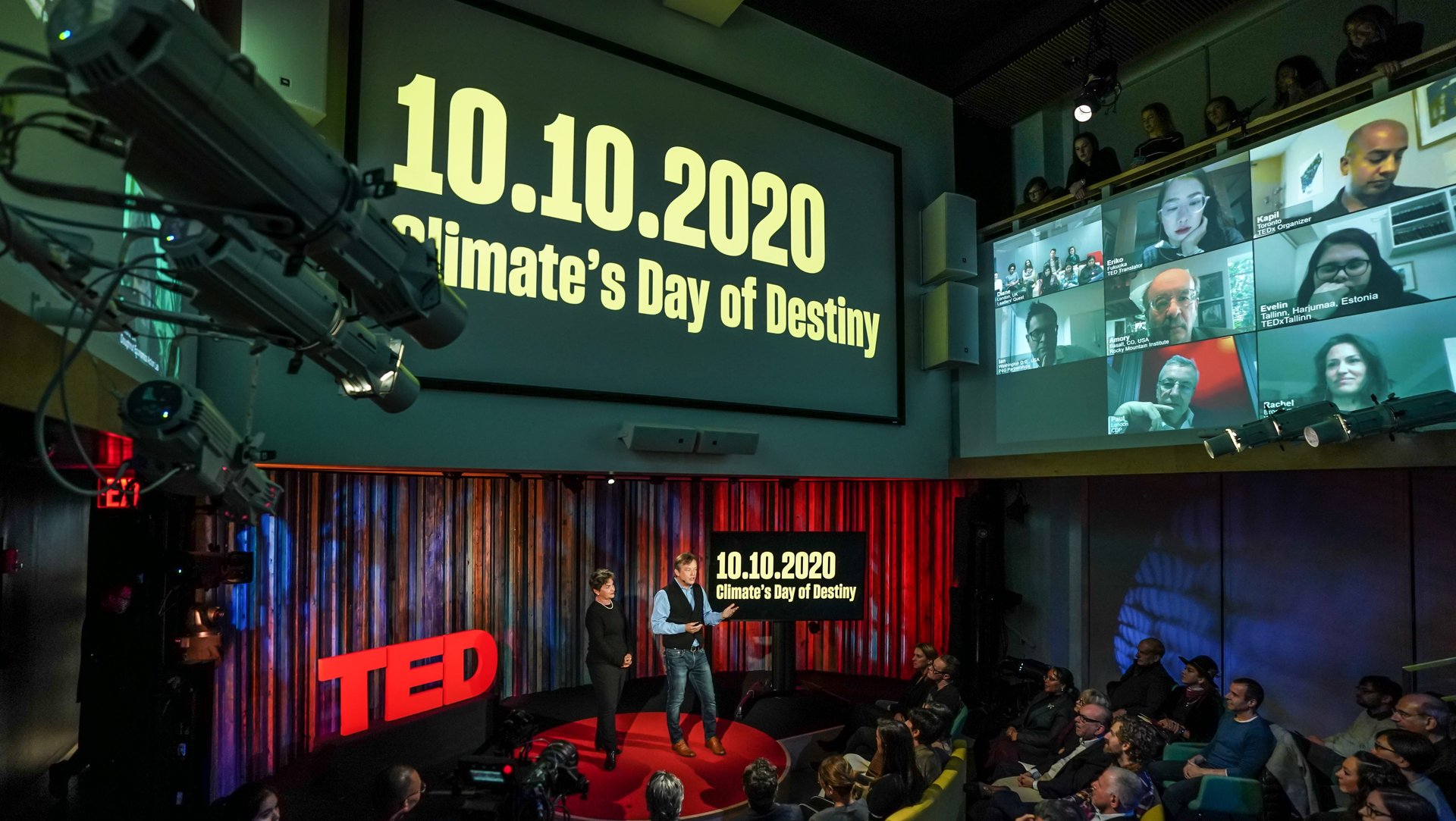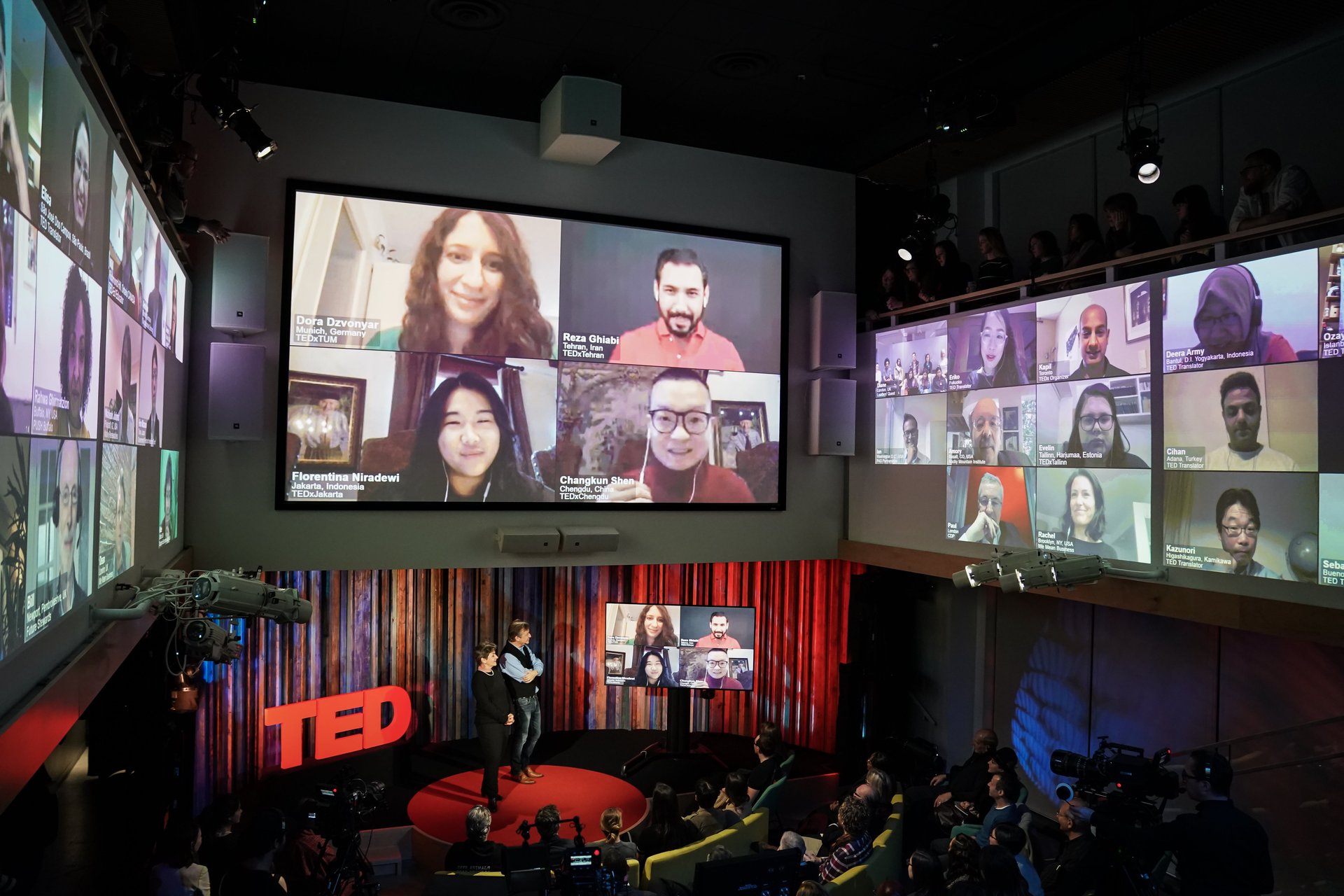TED wants to become the global hub for the climate change crisis
TED is organizing the most consequential meeting in its history. Beyond spreading inspiring talks on the internet, the 35-year-old non-profit now aspires to be a key actor in the campaign against climate change.


TED is organizing the most consequential meeting in its history. Beyond spreading inspiring talks on the internet, the 35-year-old non-profit now aspires to be a key actor in the campaign against climate change.
In an auditorium packed to the rafters with activists, politicians, business leaders, and artists, TED curator Chris Anderson introduced Countdown, a new initiative aimed at dramatically lowering the world’s annual greenhouse gas emissions levels from 55 gigatons to zero. “While TED has never before taken on a specific issue, we concluded that it’s no longer enough just to spread ideas,” he explained at the Dec. 4 gathering. “Some issues demand urgent action, which is what propelled us to take on what will be the most ambitious initiative ever attempted by this organization.”
Working with Future Stewards a coalition of business organizations that emerged after the 2015 Paris Agreement, TED hopes to crowdsource ideas from any expert or concerned citizen anywhere in the world. These proposals will be subject of a summit to be held in Bergen, Norway next year.
The eclectic crowd present at TED’s New York’s headquarters was surround by a mosaic of faces dialed into the livestream, adding a poignant production-design touch to the event. Scientists say that collective action is key to making a dent in the global-warming catastrophe. Despite the spike of environmental activism around the world, the latest UN report says that emissions continue to rise at alarming rates. Last year, in fact, was a record high for planet-warming gases, according to the UN World Meteorological Organization.
But how does one engage the world’s 7.5 billion people?

In many ways, TED, a non-partisan organization, is well-positioned to be a critical convener in the climate crisis. Its vibrant TEDx corps have organized over 30,000 TED-like events in 170 countries, including at some hard-to-reach communities in the developing world. TED has a network of 30,000 volunteer translators working in 116 languages and dialects. Conceived by designer Richard Saul Wurman and British politician Harry Marks in 1984, TED also has access to the world’s best thinkers, who have spoken on its stage at one point or another. Its elite annual conference has a loyal, well-resourced audience base willing to pay the $10,000 to $250,000 registration or “membership” fee.
Christiana Figueres, the Costa Rican diplomat who nurtured the 2015 Paris Agreement, is a lead proponent of Countdown. Of the many ambitious planet-saving initiatives she’s been part of, she believes that the TED-backed program has a real chance of working. “This one is really exciting because we’re joined by people around the world and from every single constituency,” she said. “Countdown is an invitation to everyone.” Anderson added, “We have to break out of our usual silos and work in imaginative ways.”
The initiative has already attracted several partners including YouTube, C40, Global Covenant of Mayors, Climate Reality Project, Climate Leadership Initiative, Global Citizen, and Project Drawdown. Celebrities such as Mark Ruffalo, Meg Ryan, and Joaquin Phoenix have volunteered. Anderson reports that Amazon founder Jeff Bezos, a longtime TED attendee and funder, is a supporter of Countdown, which fits with Amazon’s commitment to become completely carbon neutral by 2040.
At the event Hiro Mizuno, the chief investment Officer of Japan’s $1.5 trillion Government Pension Investment Fund pledged to reassess its investment portfolio so that it better aligns with Paris Agreement’s goals. “We’re fully aware of our responsibility as the world’s largest asset owner to inspire change in the capital market. We’ll be actively engaging with all actors to move the needle,” Mizuno said.
But in the tide of optimism characteristic of TED gatherings, who will hold Countdown accountable? Who will check the science behind solutions? Who will make sure a greedy, planet-polluting company doesn’t use Countdown as a publicity stunt to bolster its reputation? Anderson said that he believes in the power of the crowd. “By recruiting enough people around the world to do this, they will keep it honest. In a way, this is now TEDx works. It’s not perfect, but they self-police and they learn from each other,” he told Quartz. “We’re going at it with determined optimism.”